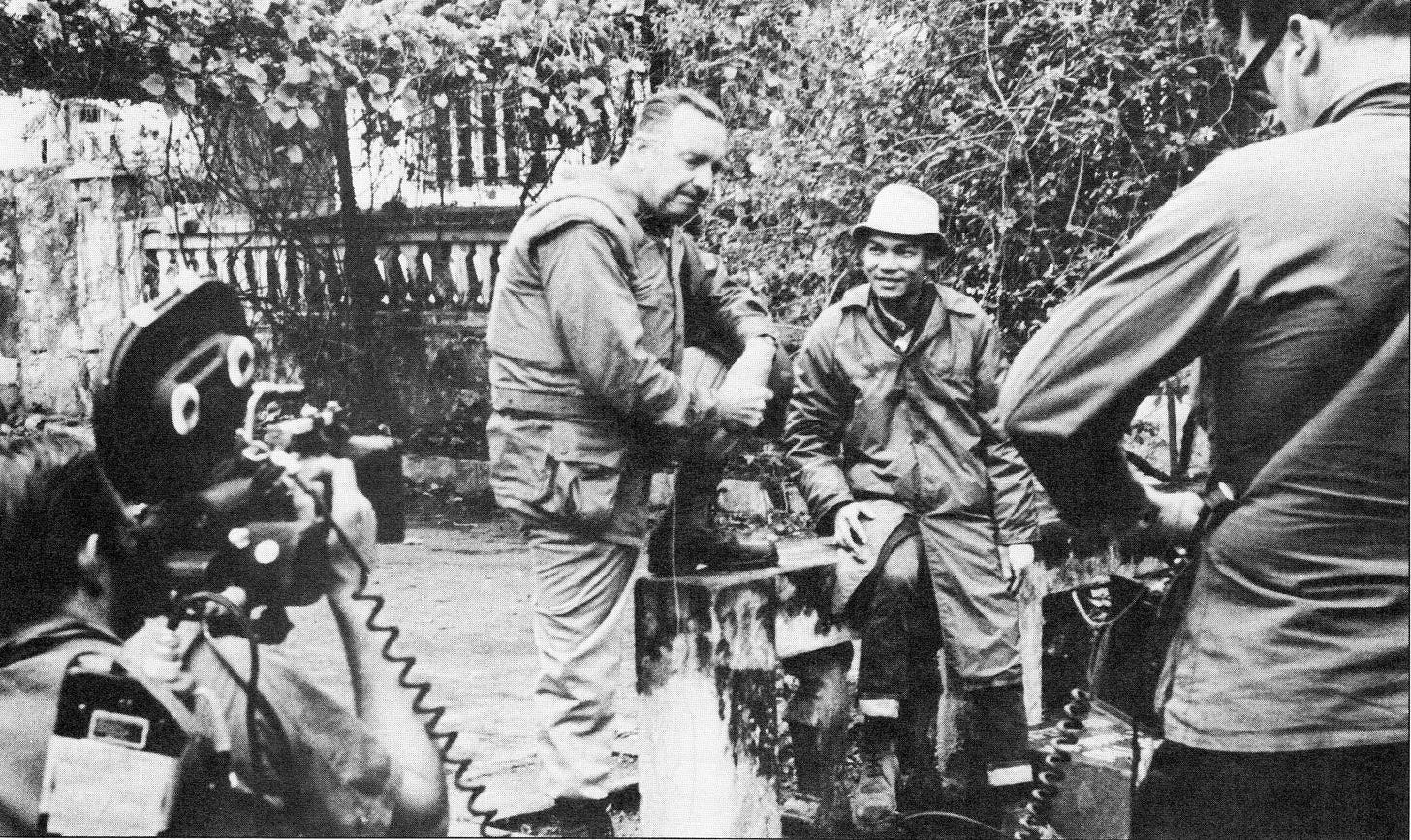And that's the way it is
Walter Cronkite on the CBS Evening News was the gateway drug that made me a news junkie. Every evening, my parents watched the local news followed by the national news when I was a child, but the news hour was just the lead up to the golden hour of 7-8:00 pm when we got to watch the fun shows like Batman and Green Acres. Then when I was 8 or 9 I started to notice what was actually on the news, soldiers running around villages and plumes of stuff dropping from airplanes onto jungles. We had a black and white Zenith, and the resolution must have been pretty grim, but there the daily casualty numbers written across the screen everyday were pretty clear.
After I found out what a “casualty” was, then I wondered why there was a war and why soldiers were killing each other. I decided I was completely against it (not a surprise since some years later I declared myself a Pacifist and a Quaker).
Politics also captured my attention around that age. In 1968, when Nixon won the Presidential election against Humphrey, I wrote “Nixon got it in the bag” on the chalkboard in my bedroom. I don’t know if my Democratic parents were pleased or not by their 8 year old’s interest in national politics, but I was pretty proud of myself for correctly using the expression “in the bag” (no surprise, as I later became an English major).
Would I have been marching in the streets, barricading myself in the Administration building in the name of Stopping the War if I had been in college in the 1960s? Who knows, but by the time I did go to college in the late 1970s, ours was probably the least activist cohort of college students ever born, so I never had to find out. But I was still hooked on the news. My sorority sister roommate told me that I was “just like her mother, always watching the news”. Every 20-year-old loves being compared to someone’s mother, but there were gripping events such as the Iran Hostage Crisis and John Lennon getting shot outside of the Dakota. So what if I wasn’t sorority sister cool?
When I went to journalism school at Northwestern University I found myself among my people. I also found out that I was never going to cut it as a journalist, and my interest in the news and politics would stay just that, an interest rather than a profession.
Still, there was so much to read, alternative newspapers (every city had one) and Rolling Stone and edgy “new journalism” by Hunter Thompson and Tom Wolfe. As I got older, The New Yorker and the The New York Times, The Guardian and the BBC (hands down the finest news service in the world), and npr have all supplied my daily fix. My first act of the day is to check the NYT and BBC apps on my phone. And now I have a new drug, podcasts. I can pop politics podcasts all day long one after the other. I never get tired of hearing the same topics picked apart by different people. I start the day with The Daily (natch), move on to The Intelligence, then I might snuffle up a hit of The Rest is Politics US followed by The Rest is Politics UK. There’s always more—The Political Scene, Sidebar, The News Agents …
My podcast hero, Anthony Scaramucci, yes that Anthony Scaramucci, on the The Rest is Politics US
Keeping up with the news and politics used to make me feel like I had power, somehow, to exert some kind of control; I wouldn’t be caught short or surprised or unawares by what was going on. But now, yeah, What the Hell is Going On?. Is knowledge power anymore when I feel so powerless?
Today, I read an interview with Rosie O’Donnell, who is about the same age as I am as it happens, in The New York Times. She’s buggered off to Ireland and has applied for citizenship there, and I kind of get it, even though I have heard a lot of Yanks say they were going to emigrate to Ireland and thought they wouldn’t last ten minutes without an ice cube maker and a tumble dryer.
I don’t think about the Vietnam War very much, and I never thought of it as being a formative influence on my personality, but maybe all of Rosie’s years of therapy have brought her an enlightenment that I don’t have.
While the documentary was filming, Ms. O’Donnell read Project 2025, a document created by the Heritage Foundation that laid out a right-wing agenda for a potential second Trump term. She believed Mr. Trump when he said he would be a dictator on Day 1, and she did not believe him when he said Project 2025 reflected anything other than a specific plan for what he would do as president.
“World tragic events have always wiped me out emotionally,” she said. “I believe it stemmed from watching the Vietnam War on television as a little kid during dinner and seeing unbearably graphic horror on the news.”
So the question is, how much can one retreat and how involved does one have to be to remain in good conscience.



Great writing! I didn’t realize we were both pacifists (I never declared myself a Quaker though). I remember many an argument around our dinner table over Vietnam with my dad. Eventually he apologized to me and said he was wrong.
Good article. I also remember Walter Cronkite & the Vietnam war. Didn’t understand everything going on but I understood enough. I still remember.